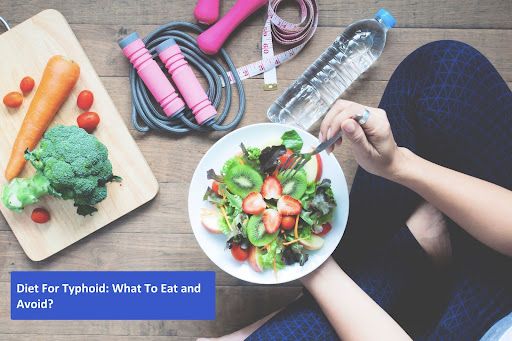Diet For Typhoid: Foods To Eat And Avoid for Fast Recovery
Typhoid fever, a bacterial infection primarily spread through contaminated food and water, can be a challenging illness to manage. However, a well-planned diet plays a pivotal role in the recovery process. In this blog, we’ll explore the foods to eat and avoid during typhoid fever, aiding in a swift and effective recovery.
Common Typhoid Symptoms
Before diving into the dietary recommendations, it’s essential to recognize the common symptoms of typhoid fever. These include high fever, headache, stomach pain, weakness, and loss of appetite. Early diagnosis and treatment are crucial, and dietary adjustments can significantly aid the recovery process.
Foods to Eat During Typhoid Fever
High-Calorie Foods: Since typhoid often leads to a loss of appetite, high-calorie foods are recommended to ensure adequate energy supply. Soft, easily digestible foods like boiled potatoes, white rice, and bananas are ideal.
Fluids and Electrolytes: Dehydration is a common concern in typhoid patients. Consuming sufficient fluids like water, coconut water, and herbal teas is crucial. Oral rehydration solutions or electrolyte-rich drinks are also beneficial.
Protein-Rich Foods: To aid in tissue repair and recovery, include easily digestible proteins in your diet. Options include boiled eggs, lentil soup, and yogurt.
Fruits and Vegetables: Soft, non-fibrous fruits like bananas, melons, and peaches are advisable. Avoid raw vegetables; instead, opt for well-cooked options like carrots and spinach.
Dairy Products: Low-fat milk and yogurt can provide necessary nutrients without overburdening the digestive system.
Foods to Avoid During Typhoid Fever
High Fiber Foods: Foods rich in fiber, like whole grains and raw vegetables, can aggravate the digestive system during typhoid. Opt for refined grains instead.
Spicy and Fatty Foods: Spicy, fried, or fatty foods can be hard to digest and should be avoided.
Raw Foods: Since typhoid is often spread through contaminated food, it’s crucial to avoid raw fruits and vegetables unless they can be peeled or thoroughly washed.
Caffeine and Alcohol: These can dehydrate the body and should be avoided until full recovery.
A Sample Diet Plan
A balanced diet plan for a day during typhoid recovery, as recommended by nutrition experts at BLK Hospital, might look like this:
- Breakfast: Soft-boiled eggs with white toast, and a banana
- Mid-Morning Snack: Yogurt with honey
- Lunch: Lentil soup with white rice, and well-cooked carrots
- Evening Snack: Herbal tea with white crackers
- Dinner: Mashed potatoes with boiled chicken, and steamed spinach
- Before Bed: A glass of low-fat milk
Conclusion
Managing your diet during typhoid fever is crucial for a speedy and effective recovery. Prioritize easily digestible, high-calorie foods, and maintain adequate hydration. Avoid foods that can irritate your digestive system. Remember, each individual’s condition might require specific dietary adjustments, so it’s always best to consult with a healthcare professional at BLK Hospital for personalized advice. Stay informed, eat wisely, and recover swiftly!



